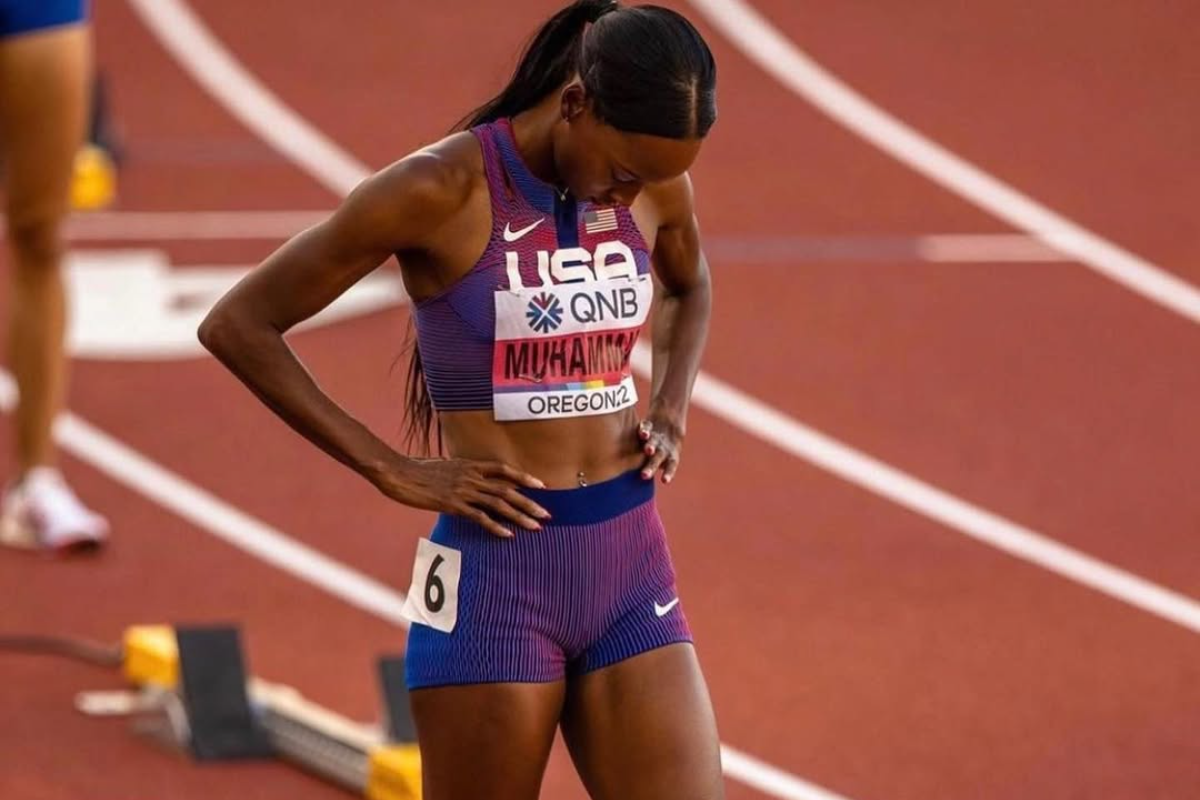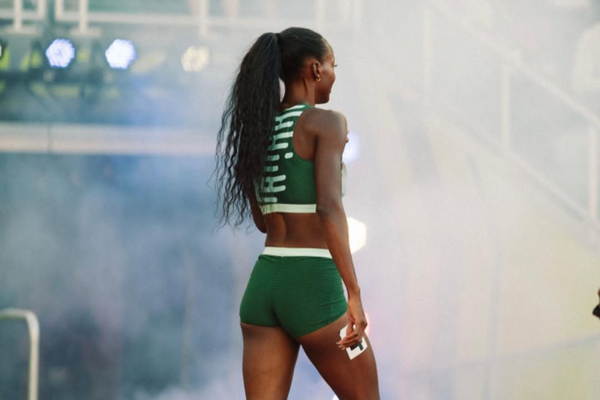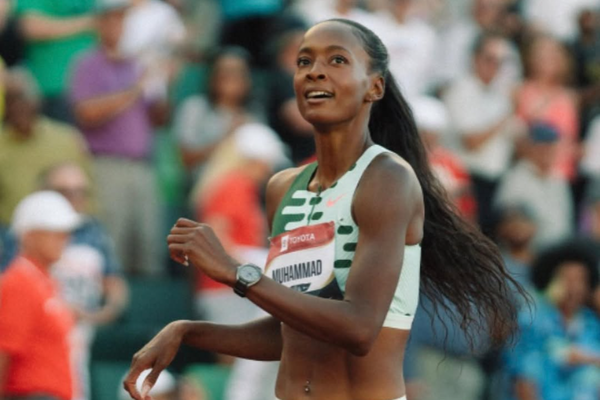
Imago
Credit: Instagram/Dalilah Muhammad

Imago
Credit: Instagram/Dalilah Muhammad
“She was running before she was walking,” her mother once recalled—a fitting start for an American track and field legend. Born and raised in Queens, New York, she began her journey like many prodigies: early, driven, and unusually perceptive. She joined a local running club as a child, but she wasn’t just running—she was studying. Even in her earliest races, she broke down her competitors’ performances, using them as lessons to refine her own. She wasn’t content with raw talent; she was building a blueprint for greatness.
Watch What’s Trending Now!
“Even when I was eighth in my first race,” Dalilah Muhammad once said, “I thought, ‘One day I’m going to be first.’” That level of self-belief, from such a young age, laid the foundation for an extraordinary career. And eventually, Dalilah Muhammad reached the top, standing on the highest podium at the 2016 Olympic Games in Rio, gold medal in hand. She would go on to break the world record in the 400m hurdles not once, but twice. But behind the medals and records was a story of resilience, reinvention, and risk.
In 2012, Dalilah came dangerously close to walking away from the track and field sport. After failing to qualify at the U.S. Olympic Trials, she seriously considered retiring. At the time, she was training under Yolanda Demus, mother of 2011 World Champion Lashinda Demus. The disappointment stung deeply, but she pushed through. In 2013, Dalilah bounced back, earning a silver medal at the World Championships. Then came a drought. The years 2014 and 2015 were rough. No world rankings. No major wins. And with the Rio Olympics fast approaching, uncertainty loomed large. Something had to change.
ADVERTISEMENT
In a candid conversation on the podcast with Paddy Steinfort, Dalilah opened up about that turbulent time: “I remember just thinking I had a great couple of years back as a professional athlete, but I was falling off and I wasn’t really where I wanted to be. For me, it was making that coaching change. It was Olympic year also.” That coaching change was pivotal. She joined the camp of Lawrence “Boogie” Johnson, known for refining raw talent into championship form. But even then, the turnaround wasn’t instant. Doubt crept in. Confidence wavered.

ADVERTISEMENT
“I just didn’t have any answers anymore,” Dalilah admitted. “Coming from being a really good runner as a child, I felt like I did everything. I do everything I can do on the track, and it’s not enough.” Boogie, however, saw what needed to be done. He didn’t overhaul everything; he tweaked, adjusted, and polished. He worked on her rhythm between the hurdles, her approach, her stride pattern—those small shifts that make massive differences at the elite level. And suddenly, everything clicked.
ADVERTISEMENT
In 2016, Dalilah Muhammad captured Olympic gold. The moment wasn’t just a triumph—it was a revelation. “In 2016, I won Olympic gold. I think from it being such a drastic change in my life, such as having such drastic success, it was just like. This is the formula.” Her story is proof that talent alone isn’t enough. The real champions aren’t the ones who never fall—but the ones who rise, reinvent, and embrace change. For Dalilah Muhammad, the path to greatness wasn’t linear—it was full of detours, doubts, and daring decisions. But every step, every hurdle, led her to history.
The track and field coach brought in some primary changes
In an interview with The New York Times, Dalilah Muhammad’s track and field coach laid out a philosophy that would quietly redefine her career. “The last thing we want to do is look like we’re hurdling. We don’t want to look like that’s a total separate effort than the run. It’s supposed to be just a run with a brief interruption, and we’re back to the ground. Everything has to be as linear as possible, as smooth as possible, and as graceful as possible.” That subtle shift in thinking worked wonders.
ADVERTISEMENT
Top Stories
Scottie Scheffler Faces Scrutiny After Taking Out Anger on Golf Club at WM Phoenix Open: ‘Washed’

Jordan Spieth Throws Bizarre Temper Tantrum as Opening Round at WM Phoenix Open Becomes a Challenge

Rob Gronkowski Demands Severe Punishment for Andy Reid After Bill Belichick Snub

PGA Tour Split Into Two as Scottie Scheffler Confirms Stance on Patrick Reed’s Return

Multiple PGA Tour Pros Stopped from Playing as WM Phoenix Open Round Is Canceled Over Recurring Problem

Drake Maye Reveals Shoulder Injury Update as Patriots QB Announces News On Super Bowl Availability

At the 2016 Rio Olympics, Dalilah delivered a masterclass in execution, gliding over each hurdle with precision and purpose. She crossed the line in 53.13 seconds to claim Olympic gold, just shy of the 52.88 she clocked earlier that summer at the U.S. Championships. Both races were proof: she wasn’t just chasing medals—she was closing in on history. The long-standing world record of 52.34, set by Russia’s Yuliya Pechonkina in 2003, suddenly seemed within reach. Then came that day.

ADVERTISEMENT
In July 2019, at the U.S. Championships in Des Moines, Iowa, Dalilah Muhammad didn’t just win—she obliterated expectations. Powering through the rain, she left her rivals in the dust and crossed the finish line in a jaw-dropping 52.20 seconds, setting a new world record and sending shockwaves through the track and field world. It wasn’t just a race. It was a statement. A breakthrough. A moment of magic born from grace, grit, and the belief that even a brief interruption like a hurdle—can’t stop what’s destined to run its course.
ADVERTISEMENT
ADVERTISEMENT
ADVERTISEMENT